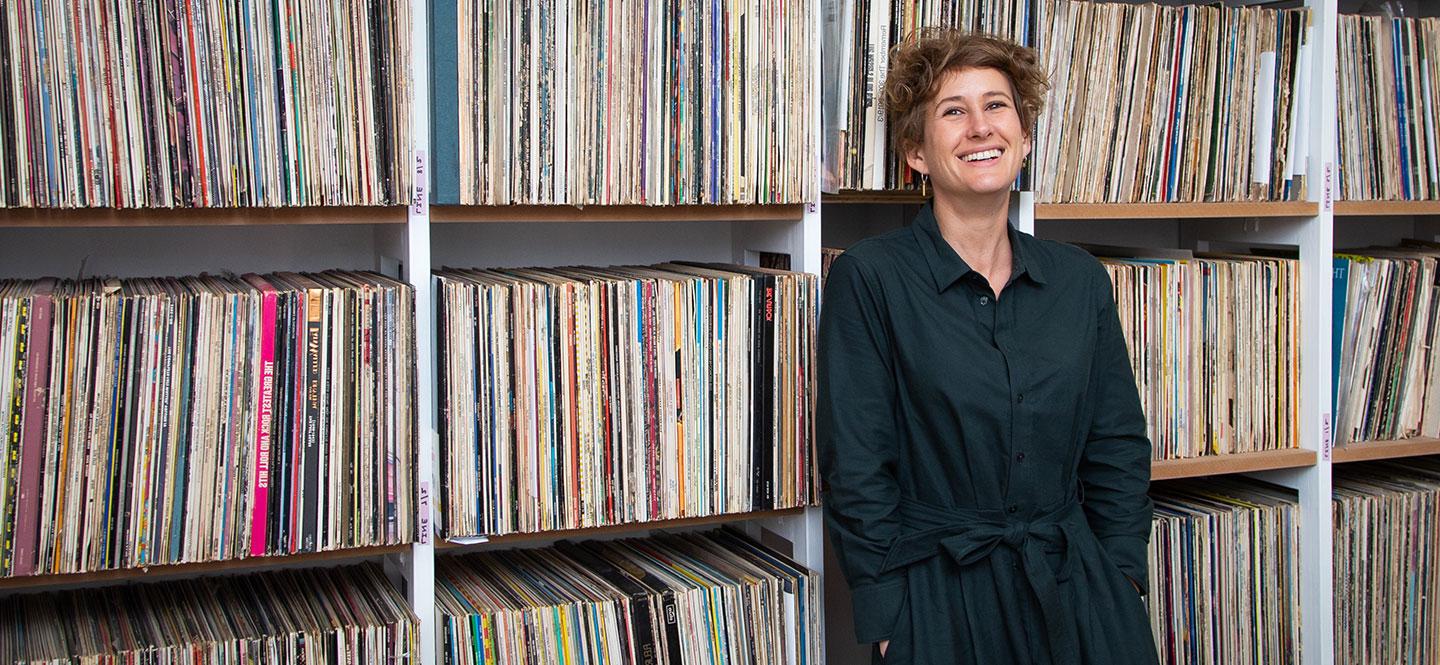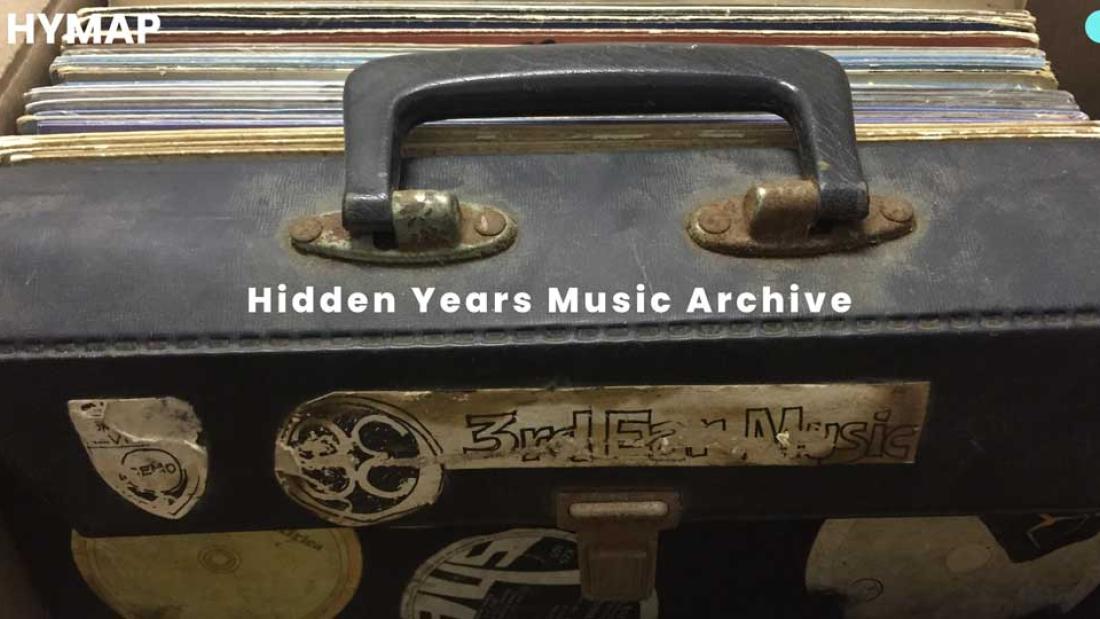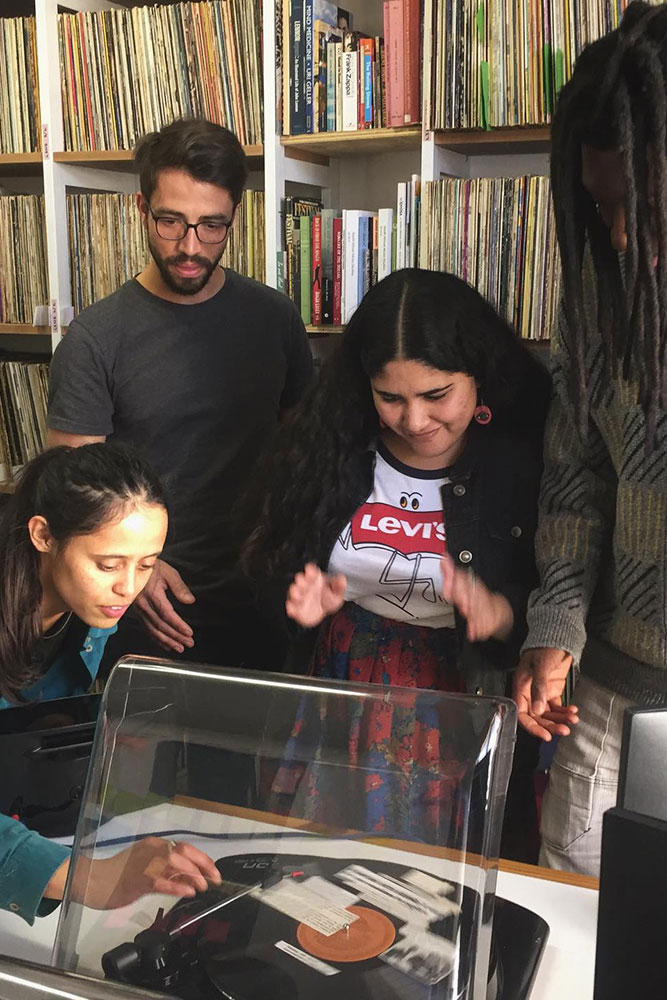Supporting science in Sub-Saharan Africa: Saving people and sounds from being forgotten
#Global Engagement
Lizabé Lambrechts
Lizabé Lambrechts researches South African popular music from the apartheid era
A good ten years ago, in 2012, Lizabé Lambrechts was literally handed the key to a gigantic music archive. At the time, the South African was doing her doctorate on a private collection compiled over many years by David Marks, the so-called "Hidden Years Music Archive". Since the mid-1960s, the songwriter and music producer had been collecting all the South African records, sound recordings and material he could get his hands on. This included recordings he made of the "Free Peoples Concerts", organized by him and several student unions in the 1970s and 80s despite restrictions imposed by the apartheid government.
Lizabé, I need a place for my archive.
Marks offered his somewhat haphazard collection to the young doctoral student with the aim of finally turning its contents into a proper archive. "That was the defining moment in my scientific career," says the 38-year-old. She adds that very few researchers in South Africa are fortunate enough to be granted a career in the field of music.

Hidden Years Archive
Video: The Hidden Years Music Archive Project
Lizabé Lambrechts had actually wanted to become an artist. She studied music and performing arts, but "because it didn't really fit," she switched to musicology in her fourth year. After her master’s, she took a break and went to Paris for a year and a half where she taught English at two local high schools. This led to numerous "experiences with museums, archives and heritage." Bloemfontein, the capital of the South African province of the Free State, where she grew up, had limited such facilities.
Back in South Africa, she enrolled at Stellenbosch University to study for a PhD on music archives, music history and heritage. "That finally put me on the right track," Lambrechts says. Admittedly, at the time, she had no idea how to organize an archive. But it gave her the opportunity to engage not only with concepts and theories, but also with the many musicians represented in the collection and their life stories. "That was a great privilege."
"Literally on the day I graduated with my PhD, David Marks called me: 'Lizabé, I need a place for my archive.'" The collection included about seven tons of material, including 7,000 long-playing records, 3000 reel-to-reel and 4000 cassette tapes, more than 50,000 photographs and 600 boxes full of posters and brochures, diaries and newspaper cuttings. Most of the material came from David’s work in the alternative music scene in South Africa and neighboring countries such as Malawi, Lesotho and Zimbabwe, leading to an eclectic collection of pop, rock, folk and traditional jazz music. "We’re not necessarily talking of musicians who wrote protest songs against the apartheid regime, nor were they musicians afraid to open their mouths. They simply met to make music together beyond concepts of race and class," Lambrechts says.

Librarian Pakama Ncume (center) teaches archiving techniques to students at Stellenbosch University.
African American musicians also toured to South Africa during this time, controversially breaking the cultural boycott. David Marks did the sound for many of these tours and recorded the concerts he was involved with such as Brooke Benton, Percy Sledge and Isaac Hayes. Although many of the concerts drew large crowds of people, the musicians are hard to find online today. To preserve this musical heritage, Stephanus Muller, a professor in Stellenbosch, offered Lizabé Lambrechts a two-year postdoctoral position. She was to bring the archive to the "Africa Open Institute for Music, Research and Innovation" and make it accessible. Because two years was far too short in view of the scope, the Volkswagen Foundation's funding offer came at just the right time. "At the end of 2014, when the archive's potential had long been clear to me, I became aware of the funding program 'Knowledge for Tomorrow' on the Internet", Lambrechts says.
The young scholar was successful with her application "Music and Memory: Discovering the Postapartheid through Popular Music Archives" and was awarded a Junior Fellowship. She used the three years to first sort the audio material and documents, then digitize them and make them available for use by students and researchers. "The highlight was that, with the help of the grant, I was able to live in Durban for a year to get to know the archive firsthand through working closely with David Marks and to digitize it," says the musicologist. In addition, the archive was able to be adequately equipped, and students and volunteer supporters were brought in to help. "The grant allowed us to secure a resource that will be available for a long time to come."
In the second funding phase, after successfully applying for a senior fellowship, Lizabé Lambrechts began researching the "Free Peoples Concerts" that took place between 1970 and '91. In the process she was able to further develop her academic career and is now networked with other archives in sub-Saharan Africa through her position as an extraordinary associate professor at Stellenbosch University. "Thanks to the funding, I've been able to organize workshops and events, invite researchers from different disciplines to the archives and exchange ideas with them." Her two mentors, Prof. Angela Impey of the University of London and Dr. Janet Topp Fargion of the British Library, also introduced her to a large network of practitioners and scholars, she says.
Despite everything, Lizabé Lambrechts has not yet succeeded in one thing: Getting a permanent position at a university. On the one hand, in economically difficult times, funding is in short supply and positions that become vacant are often left unfilled. On the other hand, she works in a very interdisciplinary way: "I move between music, cultural heritage and languages, history and art." This kind of interdisciplinary research is supported by Foundations, but doesn’t always translate to university positions that are still disciplinary bound.

Students working with the archive.
Lizabé Lambrechts has held the key to the archive in her hands for more than ten years. She is pleased that it is used from so many sides. It is mainly historians, but also sociologists and musicologists who knock on the door. Oftentimes DJs and Sonic Historians come and listen to the music as well. In South Africa there is a movement among young people to rediscover music hitherto unknown to them – and the cultural awareness that goes with it. The archive makes an important contribution to this.
[The funding] ...has opened up possibilities and opportunities I would never have had access to...
With regard to her own development, she believes the funding has made a real difference. "It has opened up possibilities and opportunities I would never have had access to and allowed me to reinvest in my community of practitioners and in the careers of students. This work has built my self-confidence, and I can pass on my knowledge to others." However, she would also like to make her research results known to the European public, especially the German public, she notes. "There are many innovations on the African continent right now that deserve greater attention."
But Lizabé Lambrecht also comes up against limits in her work. She knows such a lot of material, she says with a sigh, but parts of the large collection will always remain unknown to her. Not least because the archive accepts further collections from musicians and continues to grow. She is troubled by the fact that the tape recordings are getting old, that they are not stored correctly, and parts of what is documented are deteriorating. While the bulk of the reel-to-reel cassette tapes have been digitized, there remains a lot of digitization work to do.
In terms of long-term development, the versatile musicologist is focusing on synergies through networkingand cooperation: Together with Swedish, Brazilian and South African researchers, she is investigating in a project entitled "Decay without mourning: Future-thinking heritage practices" how cultural assets are changing and what opportunities arise from comparing archival, museum and heritage practices from around the world. The project is funded in a joint initiative on "Heritage and Change" by the Compagnia di San Paolo, the Riksbankens Jubileumsfond and the VolkswagenStiftung.
